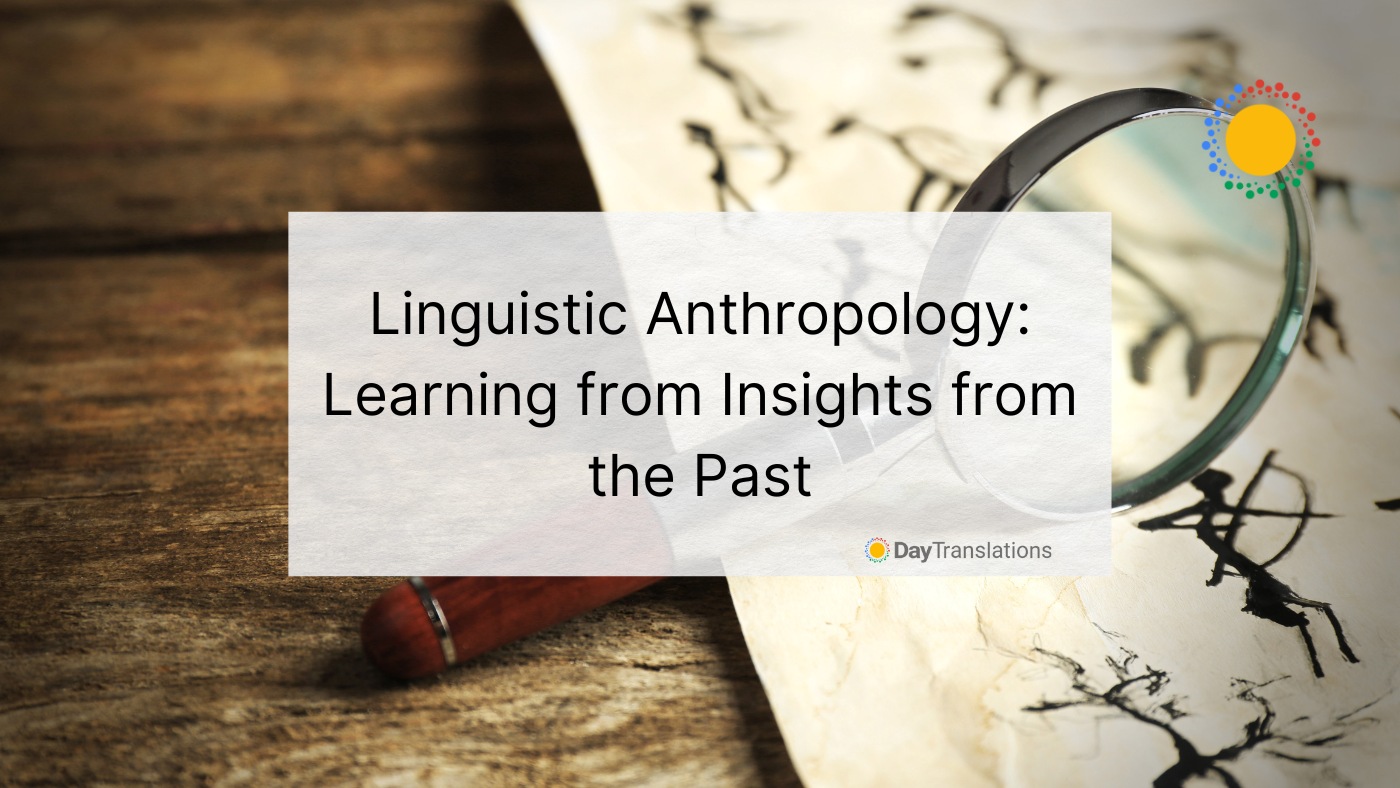Linguistics and linguistic anthropology are invaluable tools for understanding the past. By studying the way in which languages evolve and how cultures interact, linguists and linguistic anthropologists are able to provide insights into the history of a culture or group.
In this blog post, we will explore the ways in which linguistic anthropology can be used to learn from the past and how this knowledge can be applied today.
The Importance of Linguistic Anthropology
Linguistic anthropology is an important field of study that focuses on the use of language in various cultures. By examining the history of languages, linguistic anthropologists are able to gain insight into the past and current linguistic practices of different societies. Linguistic anthropology can be used to explore the development of language over time, as well as the relationships between language and culture. Through this type of research, linguistic anthropologists learn more about our own society, as well as those of others.
Key Focus of Anthropological Linguistics
One key area of importance in anthropological linguistics is the study of translations. Translations are essential for communication between different cultures and language groups, so studying their history through linguistic anthropology is a great way to gain insight into the process of language exchange. For instance, linguistic anthropologists learn how different translations were made in the past, as well as how they have evolved over time. This knowledge can help us understand how language is used in various contexts and how translation services can be improved in the future to help revive endangered languages. Additionally, looking at the history of translations can also provide a better understanding of the relationship between language and culture.
How Linguistic Anthropologists Can Help Us Understand the Past
Linguistic anthropology is a branch of anthropology that focuses on the study of language. It is a valuable tool in helping us understand the past and our current world by providing insights into how language, culture, and social behavior interact. Through the fields linguistic anthropologists study, we can gain insights into the history of translations, which can provide us with insight into how language has changed and evolved over time.
Translation services are another way that linguistic anthropology can help us better understand our past. Linguistic anthropologists study different translations of words, phrases, and entire texts, which gives us a better understanding of how dialects have interacted with each other in the past and of how language shapes communication. It also examines the use (and eventual extinction) of endangered languages and heritage languages of the past. We can also explore the different interpretations of words, both in their original context and in the context of a translation. This allows us to understand how our current language usage has evolved from its earlier forms.
Finally, linguistic anthropology can help us appreciate the importance of context when it comes to understanding language. Our understanding of language changes depending on who we are speaking to, where we are speaking, and what cultural background we come from. By looking at different contexts, we can gain insight into how different cultures have interacted and influenced each other’s language. This knowledge can then help us gain a better appreciation for the impact of language change on our own culture today.
A Linguistic Anthropologist Examines the Relationship Between Language and Culture
Language and culture are closely intertwined; they shape and inform one another in countless ways. Dialect is an integral part of a culture, and it influences how people think, communicate, and act. Language serves as a social marker that defines group identities and helps to create shared cultural meanings. It is used to convey traditions, beliefs, values, customs, and norms.
At the same time, language is also shaped by culture. The words people use, the syntax of their sentences, and the various forms of communication vary greatly among different cultures. Through language, people gain access to knowledge about their environment and form a shared understanding of how things are done. Language serves as a powerful tool for expressing cultural identity.
Linguistic anthropology studies the relationship between language and culture in order to gain insight into how people interact with each other and with their environment. They also study verbal art and semiotic anthropology. By examining the nuances of language use in different contexts, linguistic anthropologists gain valuable insights into how culture shapes language and how language structures culture. This knowledge of cultural anthropology can be used to better understand language socialization, cultural beliefs and change, and the dynamics of communication and linguistic structures within social life.
The Importance of Context in Understanding Language
The study of historical linguistics plays a crucial role in understanding language. Through the context of words, phrases, and sentences, we can understand how they are used and interpreted. Context is particularly important when seeking to understand linguistic practices of the past, as it helps illuminate the cultural and social dynamics of the time.
When attempting to understand the language from the past, it is essential to consider the context of its usage. This can be done by looking at written records, historical documents, verbal art, diaries, and other sources that provide insight into the lives of people during a particular period. When examining a document from the past, for example, linguistic anthropology scholars must look beyond the literal meaning of the words to consider the whole of the text, including who wrote it and why, who it was written for, and its intended purpose.
Linguistic Anthropology Explores Language Shapes Over Time
The contextual analysis also provides us with an understanding of language acquisition and change over time. By looking at linguistic evidence from different contexts and periods, we can see how language has evolved and changed to adapt to changing needs and interests. For example, studying language from the early modern period can help us better understand how certain words and phrases were used in speech and writing at that time, which can then be compared to how they are used today.
Linguistic anthropology is an important tool in gaining an understanding of language in its cultural context. By studying linguistic evidence from a range of different contexts and periods, linguists can gain a deeper insight into how language has evolved over time and how it is used in different cultures. This can provide valuable insights into our own culture and society and help us to understand language in its historical and social context.
The Impact of Language Change on Culture
Language has always played a key role in culture, as it is a powerful tool for creating and preserving shared identities. As language evolves over time, so do the cultures that use it. Language change can have a profound impact on a culture by shaping its collective identity, values, and beliefs.
One of the most significant impacts of language change on culture is the erosion of traditional cultural elements. As languages shift, so do the ways in which people express their thoughts and feelings, leading to the disappearance of certain words and phrases that were once an important part of a culture’s language. This loss can lead to a disconnect between the older generations and younger ones, as the language barrier can make it difficult to communicate and share experiences.
At Day Translations, we understand the importance of maintaining language accuracy in translation services. We strive to ensure that each document we translate preserves its original context and meaning. Our experienced team of translators is committed to helping our clients bridge the language gap and reach their target audience in their native language. With our quality translation services, you can be sure that your message will be accurately conveyed in any language.














Sorry, the comment form is closed at this time.